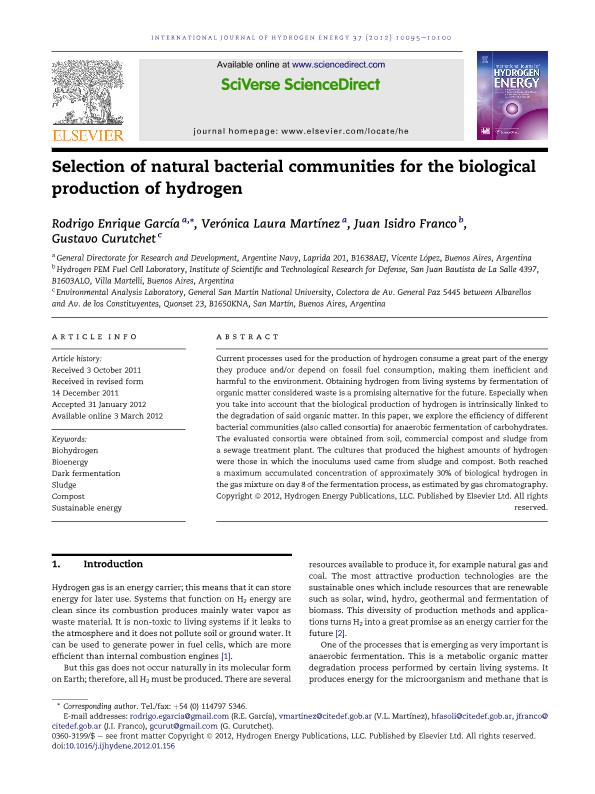Artículo
Selection of natural bacterial communities for the biological production of hydrogen
Fecha de publicación:
07/2012
Editorial:
Pergamon-Elsevier Science Ltd
Revista:
International Journal of Hydrogen Energy
ISSN:
0360-3199
Idioma:
Inglés
Tipo de recurso:
Artículo publicado
Clasificación temática:
Resumen
Current processes used for the production of hydrogen consume a great part of the energy they produce and/or depend on fossil fuel consumption, making them inefficient and harmful to the environment. Obtaining hydrogen from living systems by fermentation of organic matter considered waste is a promising alternative for the future. Especially when you take into account that the biological production of hydrogen is intrinsically linked to the degradation of said organic matter. In this paper, we explore the efficiency of different bacterial communities (also called consortia) for anaerobic fermentation of carbohydrates. The evaluated consortia were obtained from soil, commercial compost and sludge from a sewage treatment plant. The cultures that produced the highest amounts of hydrogen were those in which the inoculums used came from sludge and compost. Both reached a maximum accumulated concentration of approximately 30% of biological hydrogen in the gas mixture on day 8 of the fermentation process, as estimated by gas chromatography.
Palabras clave:
BIOENERGY
,
BIOHYDROGEN
,
COMPOST
,
DARK FERMENTATION
,
SLUDGE
,
SUSTAINABLE ENERGY
Archivos asociados
Licencia
Identificadores
Colecciones
Articulos(SEDE CENTRAL)
Articulos de SEDE CENTRAL
Articulos de SEDE CENTRAL
Citación
García, Rodrigo Enrique; Martínez, Verónica Laura; Franco, Juan Isidro; Curutchet, Gustavo Andres; Selection of natural bacterial communities for the biological production of hydrogen; Pergamon-Elsevier Science Ltd; International Journal of Hydrogen Energy; 37; 13; 7-2012; 10095-10100
Compartir
Altmétricas




